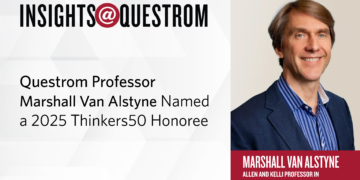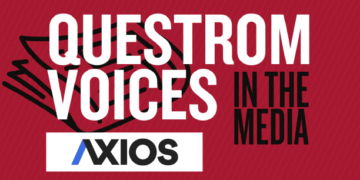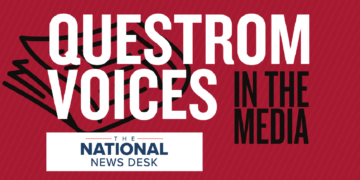by Lindsey D. Cameron, Curtis K. Chan, Michel Anteby


Summary. At the height of pandemic-era lockdowns, the term “hero” was used to describe full-time workers including frontline health workers, bus drivers, supermarket cashiers, and other workers who had to appear at work in-person. In 2020, Instacart launched a “Household Heroes” campaign to recruit 300,000 workers to the platform. While moralizing work like this might seem to have benefits for workers and the company, interviews with Instacart workers shed light on the mixed feelings many workers held about the label. The authors share these findings on how the label might backfire and identify three groups from the interviews: Skippers, Stallers, and Strugglers.
Everyone loves a hero. Whether it’s a pilot doing an emergency landing on the Hudson or Rosie the Riveter galvanizing the war effort, we can’t get enough of them. Employers have joined the bandwagon, lauding as heroes everyone from on-call plumbers to rural family doctors to customer-service reps and retail workers to humanitarian workers. And Nike recently launched a shoe line targeted for — yes, you guessed it — “everyday heroes.”
At the height of the Covid-19 pandemic, employers used similar language to describe traditional full-time workers, such as frontline health workers, bus drivers, and supermarket cashiers. Suddenly, during those scary months when merely stepping outside of the house carried a risk of contracting the deadly virus, gig workers ferrying passengers, delivering meals, and shopping for groceries were suddenly held aloft as heroes, sometimes right up there with medical professionals.
In 2020, Instacart launched a “Household Heroes” marketing campaign to seize the moment and recruit 300,000 more shoppers (Instacart’s workers) as order volume exploded. Advertisements on social media, for example, said, “Not all heroes wear capes,” heroizing workers for finding the cheese in the supermarket. On the face of it, it seemed like a reasonable idea for Instacart as a business to reinforce and disseminate a “hero” narrative that moralizes the work of these essential service workers. One might think that because gig workers are often overlooked or ignored by customers, the moralization of their work could boost their commitment and motivation by providing them some recognition. At the same time, most gig workers are classified as independent contractors, which means they face rather precarious material conditions — with relatively low pay, few protections, and limited benefits.
How, then, do gig workers react to being called heroes? Our research untangled some complex emotions around the “hero” label, with gig workers responding to it in unexpected ways. For businesses that want to cash in on the public’s worship of heroes, we found a risk of backlash.
Our recently published study examined how gig workers reacted to the sudden moralization of their jobs. We interviewed Instacart workers during the height of the pandemic, in mid-2020, and again six months later, after the hero narrative died down, for a total of 75 interviews. From those interviews, social media artifacts, and company materials, we determined these workers reacted in three different ways to the hero label — they became Skippers, Stallers, or Strugglers.
Skippers readily embraced the hero label and viewed their work as resoundingly worthy.
Skippers didn’t go the extra mile for their customers because their normal duties and exposure risk seemed enough to make them feel morally credentialed. They saw their customers as highly deserving, and tips or thank-you notes reinforced their conceptions of themselves as heroes. In part because these shoppers were not economically dependent on Instacart for their everyday expenses, Skippers generally had a very positive view of the app and the company, seeing shopping and the app interfaces as a game akin to Supermarket Sweepstakes, but had a low commitment to the platform. No Skippers were still active on the app a year later, when the hero narrative died down.
Stallers rejected the hero label and saw their work as transactional and financially necessary.
They never saw themselves embarking on any heroic journey. They did not believe shopping for others made them morally worthy, and they viewed Instacart as exploitative and manipulative, criticizing the company for calling them heroes without doing enough to show their appreciation, like paying them better. Stallers also thought most of their customers were sufficiently healthy to get their own groceries, a view that justified their rejection of the hero label. Though Stallers seemed to work reluctantly, most of them stayed on the platform as long as they could because they needed the money.
Strugglers, the largest group, were somewhere in the middle.
They wrestled to reconcile the banality of grocery shopping with the idea that they were doing moral work. They hesitated to compare themselves to doctors and nurses, and they were uneasy about getting paid for their so-called heroism. As a result, Strugglers often went above and beyond the call of duty (with actions like keeping a stash of toilet paper for customers who couldn’t find any or visiting a different store to buy critical items) to justify to themselves and others that they were, in fact, heroes. Strugglers had a mixed view of Instacart and their customers, and that view generally worsened over time as it became more competitive to get shopping gigs and customers became less appreciative, praising and tipping less. As the severity of the pandemic ebbed, many Strugglers switched to other shopping platforms (such as ShipIt) that allowed them to connect more personally with customers, create a repeat clientele list, and find more meaning in the work.
While moralizing jobs can seem like a simple and effective way to boost worker commitment and motivation, our research shows that it is not that straightforward and can backfire, having the opposite effect from what was intended. That is, when organizations and managers praise workers as heroes, some workers — like the Stallers in our study — might potentially become even more disenchanted with the organization, seeing the praise as disingenuous in the absence of other improvements in work conditions, such as increased pay, opportunities for advancement, or meaningful ways to advocate for organizational changes.
Furthermore, there also might be negative consequences for the customers: when other workers — like the Skippers in our study — accept and internalize the notion that they are heroes, they may become less motivated to go the extra mile to serve others because they see themselves as already worthy and moral. Overall, then, many workers may be neither motivated nor unified by the hero narrative. Instead, they may be demotivated and polarized by it, leading to varied responses that were neither helpful to the organization nor to its customers.
Scott Allen, a psychology professor who studies heroic leadership, wrote that the idea of heroes helps us meet all of Maslow’s hierarchy of needs. It offers safety and protection, provides social connection, and inspires us to become our best selves. That is certainly true of the countless workers, traditional or gig workers, who persevered during the pandemic so that we could have our basic necessities and creature comforts delivered safely to our doors.
But at the same time that many workers during the pandemic acted heroically in these senses, we must be careful about the unintended implications of calling them heroes. Too often employers might laud a team’s or worker’s performance without actually considering the double-edged nature of such praise, particularly if the rhetoric is not backed up with a reality of corresponding material rewards and benefits.
So, indeed, not all heroes wear capes, as Instacart claims. But telling workers they have capes does not necessarily make them heroes. Such a moralizing narrative can instead have significant (and not always positive) consequences on workers’ behavior.




















